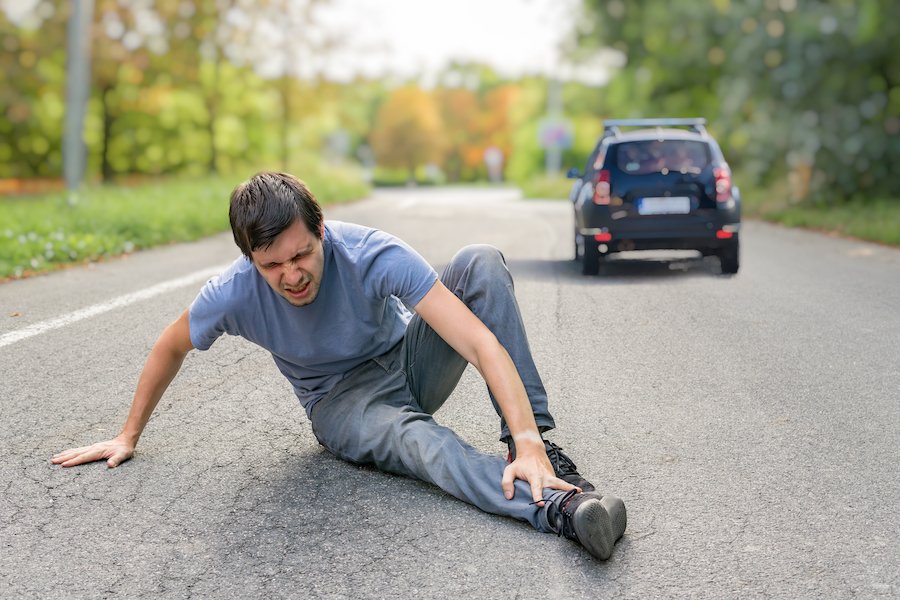Getting arrested for DUI does not mean you will be convicted. Police misconduct, defective breathalyzers and crime lab mistakes may be enough to get your charges lessened or dismissed. Visit our page on Colorado DUI Laws to learn more.
24/7 Help:
(303) 222-0330
Please note: Our firm only handles criminal and DUI cases, and only in California. We do not handle any of the following cases:
- civil matters
- CCWs or gun right restoration
- labor
- family law
- immigration
- landlord/tenant
- harassment
- restraining orders
And we do not handle any cases outside of California.
Call Us NowWhat is the statute of limitations for hit-and-run in Colorado?
Posted on

Following a hit-and-run incident, Colorado prosecutors can bring criminal charges against the suspect within 1 year in most cases, 3 years if serious injury results, 5 years if death results, and 10 years in vehicular homicide cases.
Meanwhile, hit-and-run victims can bring a civil lawsuit within 3 years after the accident.
The criminal statute of limitations
A criminal statute of limitations is the time limit in which criminal suspects can be prosecuted. Once this statute of limitation passes, the person can no longer be held criminally liable.
Below is a chart summarizing the criminal statute of limitations for Colorado hit and run cases.1
| Colorado hit-and-run crime | Criminal statute of limitations |
| Hitting unattended vehicle or property | One year after the accident |
| Causing only property damage | One year after the accident |
| Causing non-serious injuries | One year after the accident |
| Causing serious injuries | Three years after the accident |
| Causing death | Five years after the accident |
| Causing death, plus the defendant committed vehicular homicide (CRS 18-3-106) by driving recklessly or under the influence of drugs or alcohol | Ten years after the accident |
The purpose of statutes of limitation is to encourage prosecutors to take legal action quickly. The more time that passes, the more memories fade and evidence disappears. The most serious Colorado crimes such as murder have no criminal statute of limitations at all.
The civil statute of limitations
A civil statute of limitations is the time limit in which a person who may have broken the law can be sued by the victim. Once the statute of limitation passes, the person can no longer be held legally liable.
Following a hit-and-run in Colorado, the victim has three years after the accident to sue the driver. Though if the case involved vehicular homicide, the victim’s estate or family has four years following the death to bring a wrongful death suit.
Note that it may be possible for this time limit to toll (pause) in certain circumstances, such as if the victim is put in a coma and therefore unable to file a lawsuit.2
What if the statute of limitations has run?
If prosecutors try to charge you – or if the victim tries to sue you – after the applicable statute of limitations has already run, you or your attorney would file a motion to dismiss the case. The judge should grant the motion as long as the applicable statute of limitations has expired.
What if I do not get a speedy trial?
If you are charged with hit-and-run in Colorado, you have the right to a “speedy trial” no later than six months after you pleaded not guilty. If the court schedules the trial later than six months after your plea and without your approval, you or your attorney must file a motion to dismiss the case before:
- the trial begins and
- any pretrial motions set for hearing immediately before the trial or entry of plea.
If you miss this deadline, you waive your right to a speedy trial. Consequently the prosecutors can continue pressing charges against you.3
What is hit-and-run in Colorado?
Following a car accident in Colorado, the drivers have a duty to stop and exchange information, report the accident, and render aid to injured victims. If a person hits an unattended vehicle or other unattended property, the driver has the duty to try to find the owner or leave a conspicuous note with their information.
People who fail to stop at the scene of the accident and perform their duties face hit-and-run charges. The penalties for hit-and-run in Colorado depend on the seriousness of the case:
|
Hit-and-run case |
Penalties in Colorado |
| Hitting unattended vehicle | Class 2 misdemeanor traffic offense:
|
| Only property damage | Class 2 misdemeanor traffic offense:
|
| Causing only non-serious injuries | Class 1 traffic misdemeanor:
|
| Causing serious injury | Class 4 felony:
|
| Causing death | Class 3 felony:
If the defendant was allegedly driving recklessly or under the influence of alcohol, the defendant would also face charges for vehicular homicide. Vehicular homicide by reckless driving is a class 4 felony carrying 2 to 6 years prison, and/or a fine of $2,000 to $500,000. Vehicular homicide by DUI is a class 3 felony, carrying 4 to 12 years in prison, and/or a fine of $3,000 to $750,000. |
Learn more about felony hit-and-run. Also see our article, Denver hit and run – What are the penalties? 4
Additional resources
Find helpful information from the Colorado Department of Motor Vehicles website here:
- Report an Accident – Instructions and link to form.
- Request for Accident Records, Accident Information and Death Certificate Information – Online form.
- Obtaining Accident Reports or Ticket Information – Instructions and link to form.
- Point Suspensions – Information on how accruing points can trigger a license suspension.
- Motor Vehicle Hearings – Information on how to contest a license suspension.
Legal References
- CRS 16-5-401.
- CRS 13-80-101(1)(n); CRS 13-80-102; see also Olson v. State Farm Mut. Auto. Ins. Co. (2007) 174 P.3d 849; see also People v. McKinney, (2004) 99 P.3d 1038.
- CRS 18-1-405.
- CRS 42-4-1601 – 1612.
About the Author

Michael Becker
Michael Becker has over a quarter-century's worth of experience as an attorney and more than 100 trials under his belt. He is a sought-after legal commentator and is licensed to practice law in Colorado, Nevada, California, and Florida.
